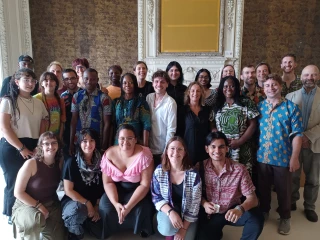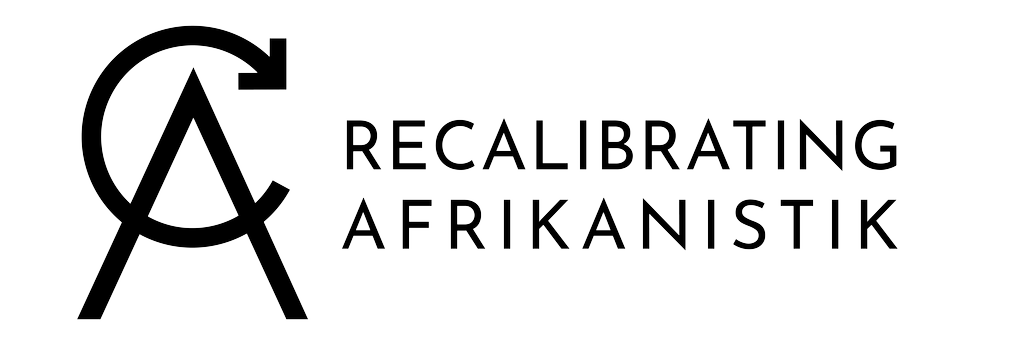RecAf Summer School 2024 in Naples
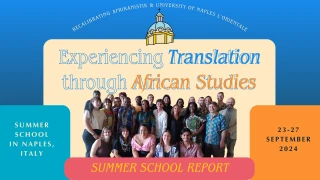
Recalibrating Afrikanistik was originally comprised of three partner universities in Germany and three in Africa, but the University of Cologne dropped out two years after the project began, leaving us high and dry. Fortunately, we were able to turn this problem into an opportunity when the University of Naples l’Orientale in Italy accepted our invitation to replace Cologne. They brought with them not only a long tradition of teaching and studying African languages, but dedicated and personable experts like Prof. Martin Orwin, Prof. Flavia Aiello, and later Prof. Roberto Gaudioso to our steering committee. This in turn broadened the horizons of RecAf—we were no longer talking in terms of recalibrating the field of Afrikanistik just in Germany, but in Europe.
The yearly schools in Europe were always envisioned to be rather modest affairs in comparison to those hosted by our African partners. The idea was that a handful of bachelor’s and master’s students from two German universities would travel to the third for a week of academic exchange, interdisciplinary perspectives, and good conversation over simple lunches and accommodations. However, this modest funding wasn’t enough for international travel, so when Naples joined the project, Leipzig and Naples combined their schools (and money) so that our students could all gather in Naples in September 2024 for an in-person school on the topic “Experiencing Translation through African Studies”.
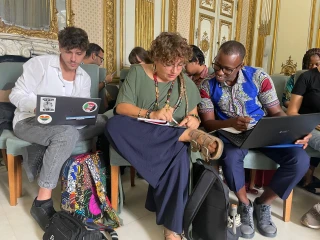
We were extremely fortunate to have our Nigerian partner, Prof. Judith Mgbemena from the University of Wukari, visiting Bayreuth at the time, so she came to Naples and presented on Igbo (her native language) culture and poetry. We structured the whole week-long school around this expertise and a single Igbo poem that Judith picked called “Akpịrị Ogologo” by Nkechi B. Ohaike (who also happens to be a contributor to our vodcast Afrikanists Assemble!)
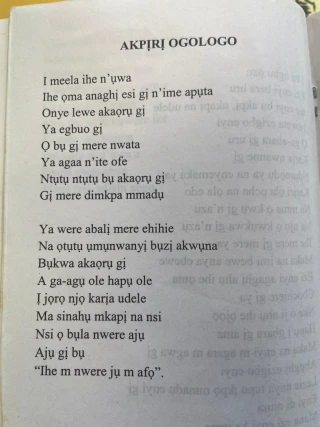
Day 1 was dedicated to introductions of all kinds. We gathered in an ornate, gilded room in a gorgeous location right on the Gulf of Naples for a welcome address by Prof. Roberta Guinta, the head of the Department of Asian, African & Mediterranean Studies at the University of Naples l’Orientale. After that, Prof. Clarissa Vierke from the University of Bayreuth gave an “Introduction to Un/translatability” and Dr. Serena Talento gave an online lecture on “The Many Facets of (Un)Translatability & the Ethical Dimension of Translation”. After a casual but delicious lunch, Judith gave her introduction called “Igbo Language, Culture, & Poetry”. Then, after a coffee break (we were in Italy, after all), our Italian colleagues led us on a city walk to introduce us to the city of Naples.
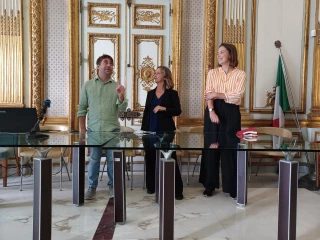
Day 2 opened with Judith and Prof. Andrew Harvey from the University of Bayreuth walking us through how to record oral poetry and transcribe it in a very practical tutorial: Andrew recorded Judith’s reading of “Akpịrị Ogologo” and showed us how to begin writing what we hear in a particular software called ELAN. After lunch, Dr. Irene Brunotti led a workshop called “How to Make Translating Spaces Safe for Difference” by giving us an excerpt of a novel featuring a character in a wheelchair, asking us to translate it, and inviting us to sit in the difficulty of the task.

On day 3, Judith and Clarissa started a conversation about literary translation, and how one might go about translating “Akpịrị Ogologo” without any personal expertise in Igbo. This was picked up later by Flavia, who also has experience with literary translation. After lunch, we were joined by Martin, who had left RecAf a year before to lead his own research project on Islamic literatures and who gave us a fascinating lecture called “Sound & Language Flow in Translating Somali Poetry into English”. During the coffee break, the students were invited to talk about their own ongoing translations of “Akpịrị Ogologo” into a language they knew.
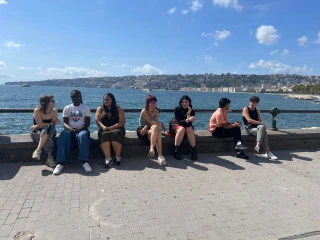
Day 4 opened with Roberto, someone with experience on the performance of poetry, giving a lecture called “Translating Verbal Art through the Body: Digging into the Text & Keeping Its Power”. After that, the students were set free to go out into the city and record their own performances of their translations of “Akpịrị Ogologo”. Everyone reconvened for lunch, and then I gave an introduction to subtitling, walking the students through how to make their own subtitle files from scratch and add them to their video projects. We were then treated to a tour of the Umberto Scerrato Archaeological Museum at the University of Naples l’Orientale by Prof. Andrea Manzo, head of the Northeastern Africa section.
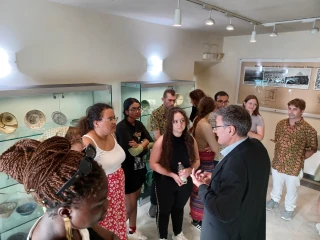
Day 5 was a short, but beautiful day. The students, who had been working the whole week on transcribing, translating, performing, recording, editing, and subtitling their versions of “Akpịrị Ogologo” showed the group their final videos on a big screen. We got to see the Igbo poem interpreted in a variety of linguistic, visual, performative, and textual styles in German, Russian, Italian, Neapolitan, Yoruba, and Arabic. The staff were frankly baffled by the final products—the students not only put in the time and work, they had wrapped their heads around new concepts and skills and produced something genuinely fascinating. Judith was especially elated at seeing poetry in her native language taken seriously and given such interpretive work. The summer school closed with us all feeling proud of our students and like the topic of translation in African Studies had been practically pushed to an innovative new place in all our minds.
